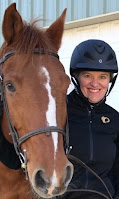“Do what you love” may be the most overused advice in the career-improvement world. Countless superstar entrepreneurs’ TEDx talks and thought leaders’ bestselling books have quoted Maya Angelou: “pursue the things you love doing and then do them so well that people can’t take their eyes off you.” But that’s not always possible in practice.
I know this firsthand. Once upon a time I turned my back on a half-finished MBA and a corporate job’s maddening pace and rigid hierarchy, escaping to do what I loved: writing.
The act of quitting made me subversive, and that alone fueled creative expression. I mapped out chapters, content. Figured I’d have the memoir written in six months, employ an editor, find an agent, become a bestseller, Oprah would call, the whole bit.
Four years later I found myself gazing into my monitor, not knowing whether to put a period at the end of the sentence or keep going with a comma. I’d lost my home in foreclosure, gone bankrupt, written three hundred thousand words, revised the body of work four times. And while slurping away at my eighty-seventh cosmo, I understood what I was really missing. A mentor. Someone who’d gone before, knew how to shape art into something saleable and would come with a tribe of like-minded potential collaborators. I needed someone to touch what the poet Mary Oliver called the “wild silky” part of myself and, finally, make it palatable to the world.
Hemingway had Stein, Beethoven had Neefe. We mere mortals need mentors, too—and we can hire them. But there are thousands of writing coaches out there: some are competent, some are lousy, some are soul crushers.
How do you find your coach?
1. Go with the gut: does the coach’s work style and personality jibe with your own? Do her testimonials feel obligatory and ingenuine, or honest and objective? Does she “guarantee she’ll help you write a bestseller”—or provide thorough analysis and work with you to tighten up the manuscript? Listen to your intuition. There are many fantastic coaches with integrity and know-how—don’t get stuck with empty promises.
2. She’s part of your tribe: if you see a potential mentor’s work in a publication you love, or discover her in a group on social media with whom you share a vibe, chances are you have similar taste. I found my coach through my Reiki teacher. My coach had helped a fellow Reiki student get an agent and a book deal with Random House.
3. She has street cred and success: my coach had testimonials from people who had published, made writing careers, and gotten bylines with top media outlets. She was also successful in her own right—an internationally acclaimed author who’d made her living writing. I knew she could trailblaze a path.
4. She gets you, every single part of you: my coach works in the Gateless method, which fuses creative brain science, industry-savvy skills and tools, and radical nurturing to bring domain-changing work into the world In this methodology, a coach leans into your greatest strengths, the energy of the writing, and the power of your work in the world to manifest your singular genius in the form of a book. Through this method, my coach helps all of me rather than just the part of me working on my craft. This might not be your style at all! Some writers crave nurturing, others want firm deadlines. Make sure your coach isn’t just about deliverables, numbers, list-building, ideal clients and great gigs—unless that’s what you want.
5. It doesn’t happen overnight: Anyone who promises the world in thirty days isn’t helping you make lasting change. It took me an eleven-year journey through the trials and tribulations of a writer’s life—finding the time to write in between putting food on the table—to get to the key of mentorship. Something magical did happen with my coach, and while it felt like it happened overnight, it’s too deep and long-lasting for that.
Since working with my coach I’ve been shortlisted for prizes, published in the top online media and literary journals, and polished my memoir to pitch literary agents. But more than that, I understand that often, those who fail at doing what they loved just didn’t have the guidance they needed to learn how to soar.
What will you do today to obtain the guidance you need to succeed?
Since working with my coach I’ve been shortlisted for prizes, published in the top online media and literary journals, and polished my memoir to pitch literary agents. But more than that, I understand that often, those who fail at doing what they loved just didn’t have the guidance they needed to learn how to soar.
What will you do today to obtain the guidance you need to succeed?
* * *
Lisa is pitching “Calamity Becomes Me” to literary agents, her memoir about survival, told with insight, reflection and laugh out loud moments. She also publishes essays on the writing life and women who inspire her. Her work has been featured in Brevity Magazine, Creative Nonfiction, Memoir Magazine, Horse Network, Writer Advice, and Shark Reef. She lives near Boston, where she writes technology content for VMware, bikes, and rides horses. You can reach her on Twitter and LinkedIn.
~~~~~~~~~~~~~~~~~~~~~~~~~~~~~~~~~~~~~~~~~~~~
Would you like to participate in Friday "Speak Out!"? Email your short posts (under 500 words) about women and writing to: marcia[at]wow-womenonwriting[dot]com for consideration. We look forward to hearing from you!
~~~~~~~~~~~~~~~~~~~~~~~~~~~~~~~~~~~~~~~~~~~~
~~~~~~~~~~~~~~~~~~~~~~~~~~~~~~~~~~~~~~~~~~~~
Would you like to participate in Friday "Speak Out!"? Email your short posts (under 500 words) about women and writing to: marcia[at]wow-womenonwriting[dot]com for consideration. We look forward to hearing from you!
~~~~~~~~~~~~~~~~~~~~~~~~~~~~~~~~~~~~~~~~~~~~






0 comments:
Post a Comment